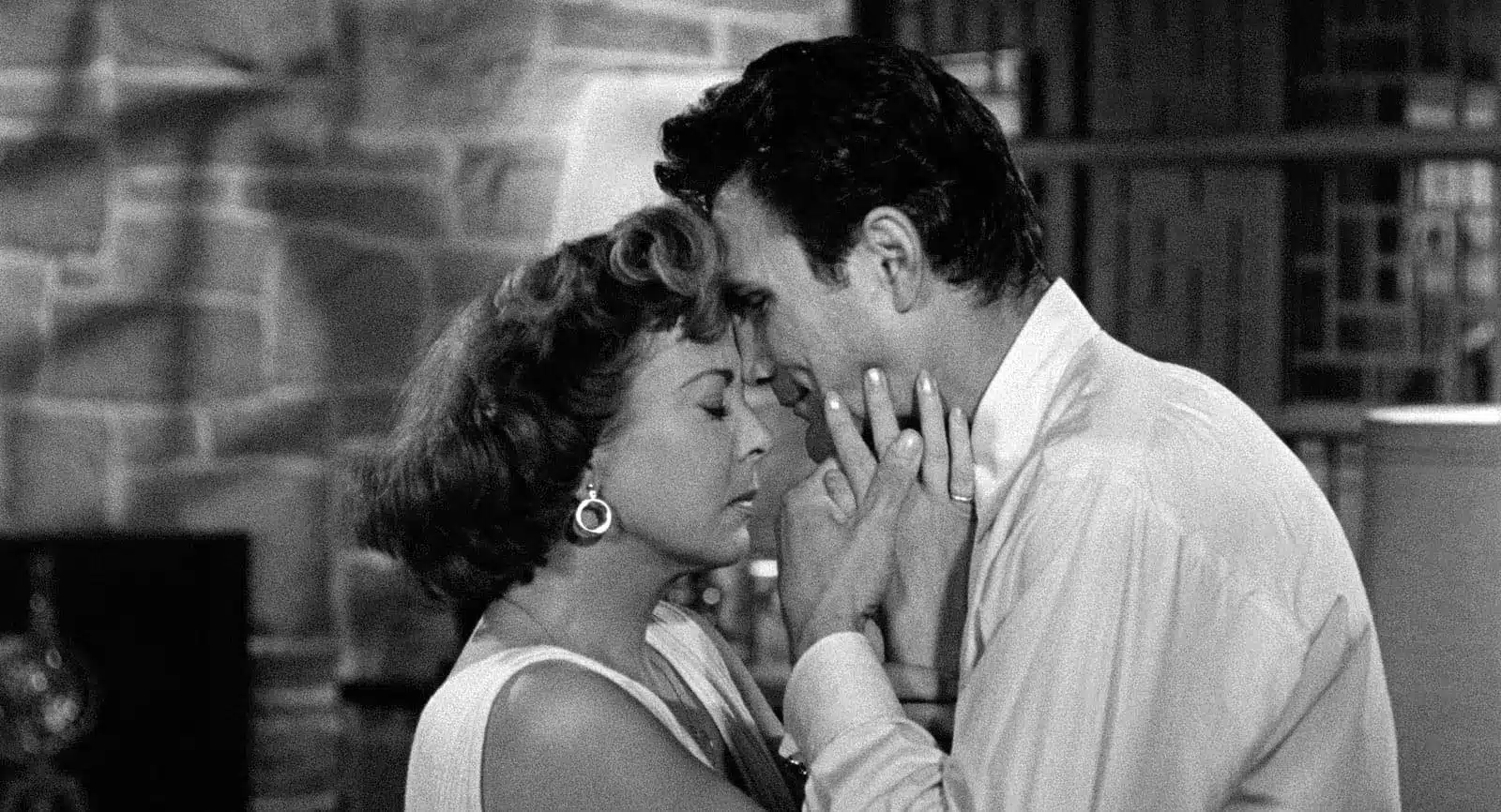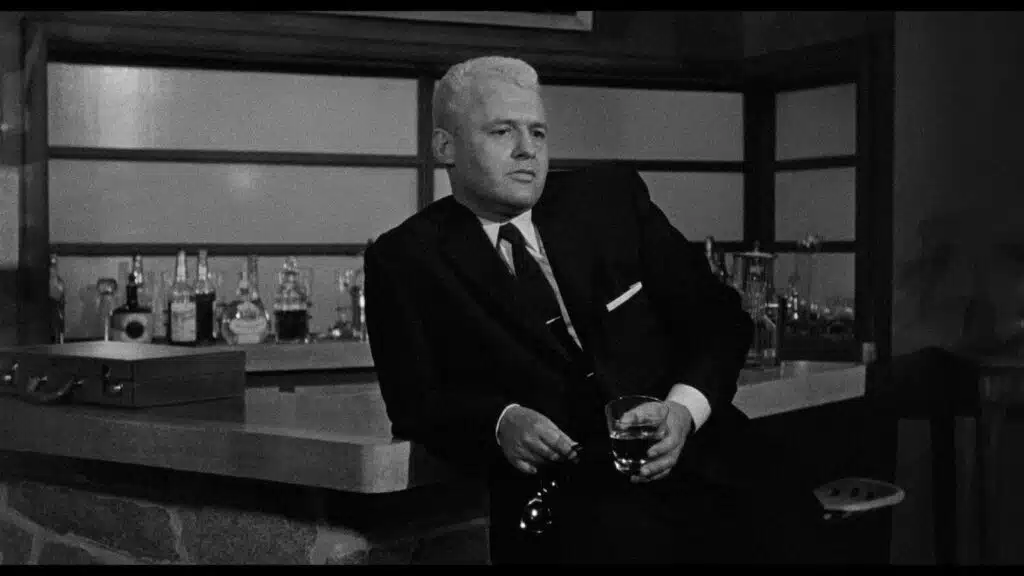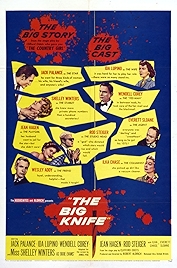1955’s The Big Knife is where a lot of people turn when they fancy another wallow in the filth and corruption of showbiz and have already done In a Lonely Place or The Sweet Smell of Success.
The line-up looks promising. It’s based on a play by Clifford Odetts, who co-wrote the screenplay for In a Lonely Place with Ernest Lehman. It’s directed by Robert Aldrich, who liked to hang around in dark corners (Kiss Me Deadly, What Ever Happened to Baby Jane) and the director of photography is Ernest Laszlo, a master of dramatic lighting (Stalag 17, While the City Sleeps, Inherit the Wind).
The cast is promising too. What you need for a film like this is has-beens and never-quites, and Aldrich has them in Jack Palance, Ida Lupino, “Miss Shelley Winters” (as she’s billed), Rod Steiger, Ilka Chase, Wendell Corey and Everett Sloane.
In what’s basically a stage play taking place on one set, the action follows movie star Charlie Castle (Palance) as he approaches the signing of yet another seven-year contract with studio boss Stanley Hoff (Steiger). Charlie’s wife, Marion (Lupino), doesn’t want him to sign, reckoning he can do better than the cheap trash that has made Hoff rich. Husband and wife have fallen out over it, in fact, and she’s sleeping in the beach house, something poisonous gossip columnist Patty Benedict (Chase) has found out about and is threatening to splash all over the papers.
Benedict has something else on Castle, and so does studio boss Hoff – they both know that Charlie was involved in some terrible hit-and-run accident years before and that the studio covered it up.
Which way is Charlie going to jump – towards freedom and redemption and a possible stretch inside or seven more years and a golden cage?
In the interim, and posing the same question in a more fleshy way, is Charlie going to make it up with his wife, who he loves, or settle for the flashy and youthful charms of starlet Dixie Evans (Winters), who’s buzzing about him hoping he’ll make a move on her when he’s drunk – which is almost all the time.
It’s difficult to get a gauge on Palance’s acting. Is he terrible, or just right as the everyday guy who once had principles but who’s grown corrupt on the spoils of fame? His performance wanders, but then Charlie is also wandering, the man who can’t decide what to do and who’s getting whispers from his wife, his agent, the starlet, all of them saying slightly different things.
Lupino does some lip-quivering as the principled, decent wife. Everett Sloane you might remember as playing Charles Foster Kane’s business manager in Citizen Kane and he’s something similar here as Charlie’s agent and useful explicatory device.
It’s Wendell Corey’s Smiley Coy who really stands out, as the piece-of-shit studio fixer with an “it’s just business” shrug ready for when he’s doing his boss’s dirty work.
Which brings us to Rod Steiger, who comes on a couple of time – fat, with dyed blond hair, a pair of sunglasses worn indoors, and shouting, over-acting, Method madness tics flickering away the whole time. It’s entirely out of keeping with the rest of the cast and spectacular in all the wrong ways, like getting cornered after the competition by the guy who came third in a Marlon Brando impersonation contest. (I’m so amazed by this terrible performance that I’m going to have to rewatch The Illustrated Man, often held up as Steiger at his absolute best). Surely Peter Sellers studied this Steiger performance before donning Dr Strangelove’s shades.
But back to the story, which is, we’re helpfully told at one point, “a fable, about modern values… Success… Happiness”. What shall it profit a man if he’s a big movie star but has lost his soul, and all that.
And what is it with various men calling Charlie pet names like “kitty” and “darling”? Why, when Charlie is asked what he thinks about women, does he respond dismissively that “there’s room in the world for ’em”? Is this a subtext waiting to be explored, or a remnant from the original play that got slightly lost in translation?
It does bring us to the film’s big problem though. It’s difficult to feel a lot of sympathy for a pampered movie star who’s done something the rest of us would go to jail for and who’s currently bitching about being offered lots and lots of money to go to work. If he’s also not being entirely honest about his sexuality for some reason, warming to him is even harder.
In short, nah! If it’s Bad Hollywood I’m after, I’ll take the transactional bleakness of It’s a Lonely Place any day.
The Big Knife – Watch it/buy it at Amazon
I am an Amazon affiliate
© Steve Morrissey 2023


